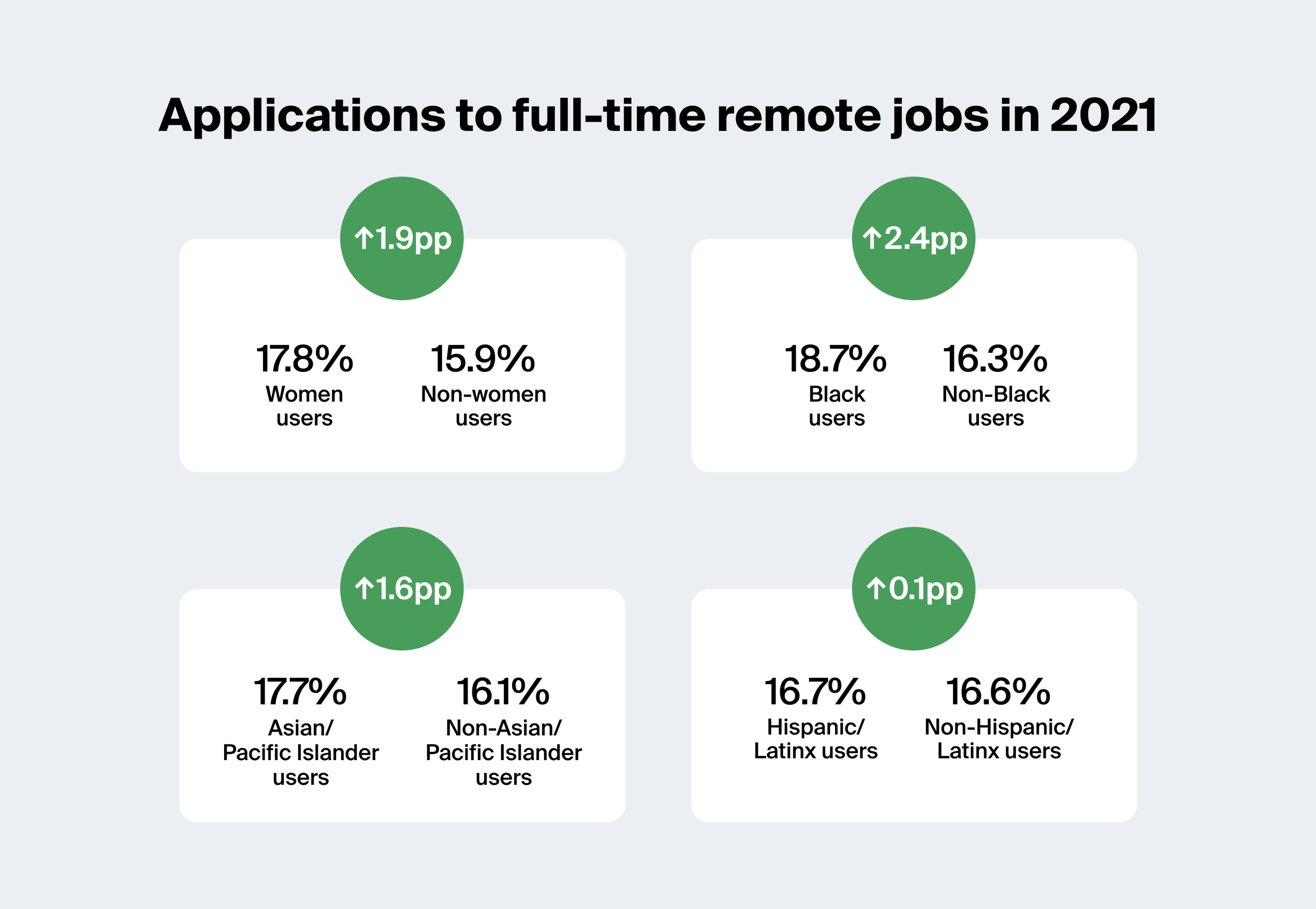Outsize interest in remote work
Gen Z is entering the workforce after more than two years of COVID restrictions and widespread remote school and work, which has shaped their expectations. The recent Handshake Network Trends report, The changing map of Gen Z jobseekers, found that employer flexibility is paramount for students and early grad job seekers. In 2021, remote jobs on Handshake’s platform got nearly triple the applications that non-remote jobs did. But platform activity showed that underrepresented groups show an even higher interest in remote work.
Women and Black users apply to remote jobs at higher rates
Interest in remote work was not equally distributed on the platform. Our analysis showed that women, Asian/Pacific Islander, and Black applicants were statistically more likely to apply for remote jobs.

The share of applications from women to remote jobs was 1.9 percentage points higher than non-women. The share of applications from Black users was 2.4 percentage points higher than non-Black users in the same period. These percentages translate to over 119,000 more applications from women and 12,000 more applications from Black users than expected.
This validates a recent Future Forum report which found that 81% of Black respondents want flexible or hybrid work, compared to 75% of white respondents. And that same survey showed that 85% of women currently working fully remotely want flexible or hybrid work, compared to 79% of men.
Women and students of color also prefer virtual recruiting
We have already seen this trend appear earlier in the talent pipeline, at virtual career fairs and recruiting events. In our summer 2021 report, Who Wins with Virtual Recruiting?, surveys showed that job seekers from groups facing explicit and implicit bias prefer virtual career events and interviews to in-person ones.
Women, students of color, and neurodivergent students found virtual career events and interviews to be less anxiety-inducing and more accessible when compared to meeting with prospective employers in person.
And critically, when compared to in-person events, the majority of Black and Hispanic students were more likely to apply to positions after attending a virtual career event because they felt higher degrees of connectedness to employers.
Consider the equity impacts of return-to-office plans
Not all employees experience the workplace equally. Data show that workers from underrepresented groups often feel more comfortable working remotely and having more control over their time in the office. Any “return to the office” plans would need to consider the equity impacts on the workforce. This is especially true for incoming Gen Z employees, who have shown themselves to be highly intentional about the workplace cultures they enter.
For more on what Gen Z values in the workplace, read the full report, The changing map of Gen Z jobseekers. Find more Handshake Network Trends insights here.
